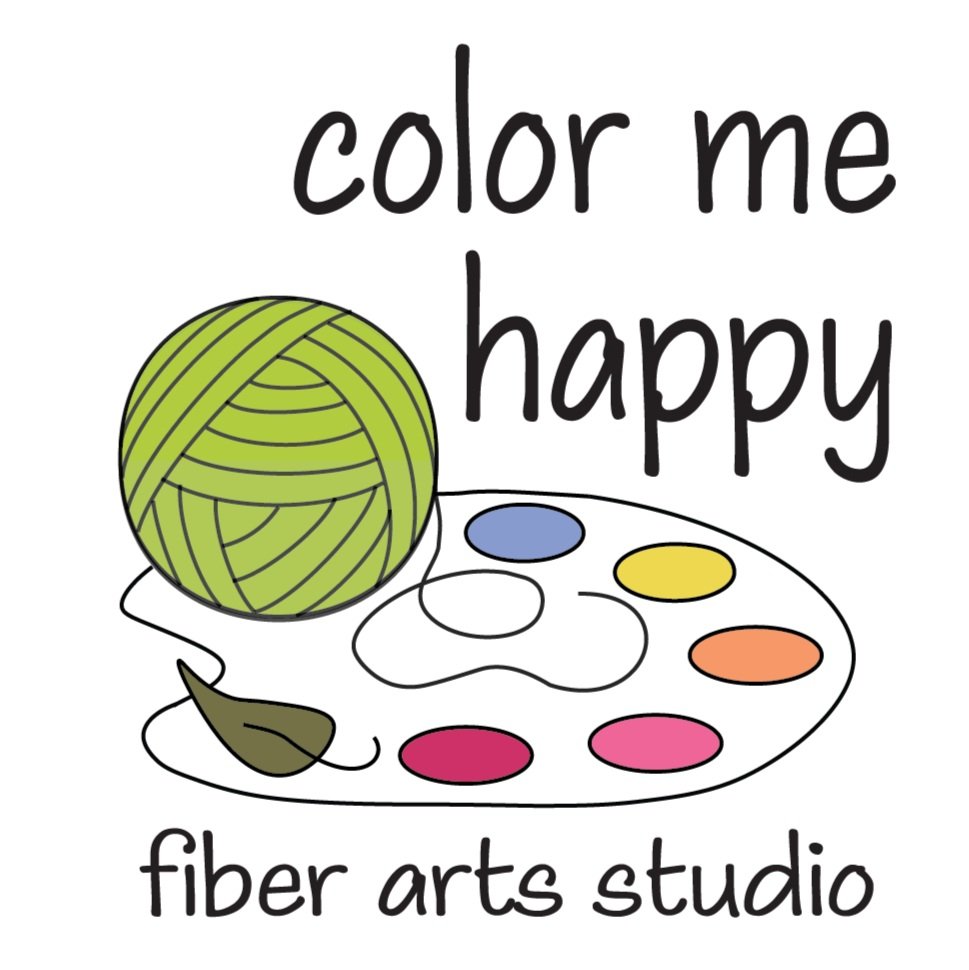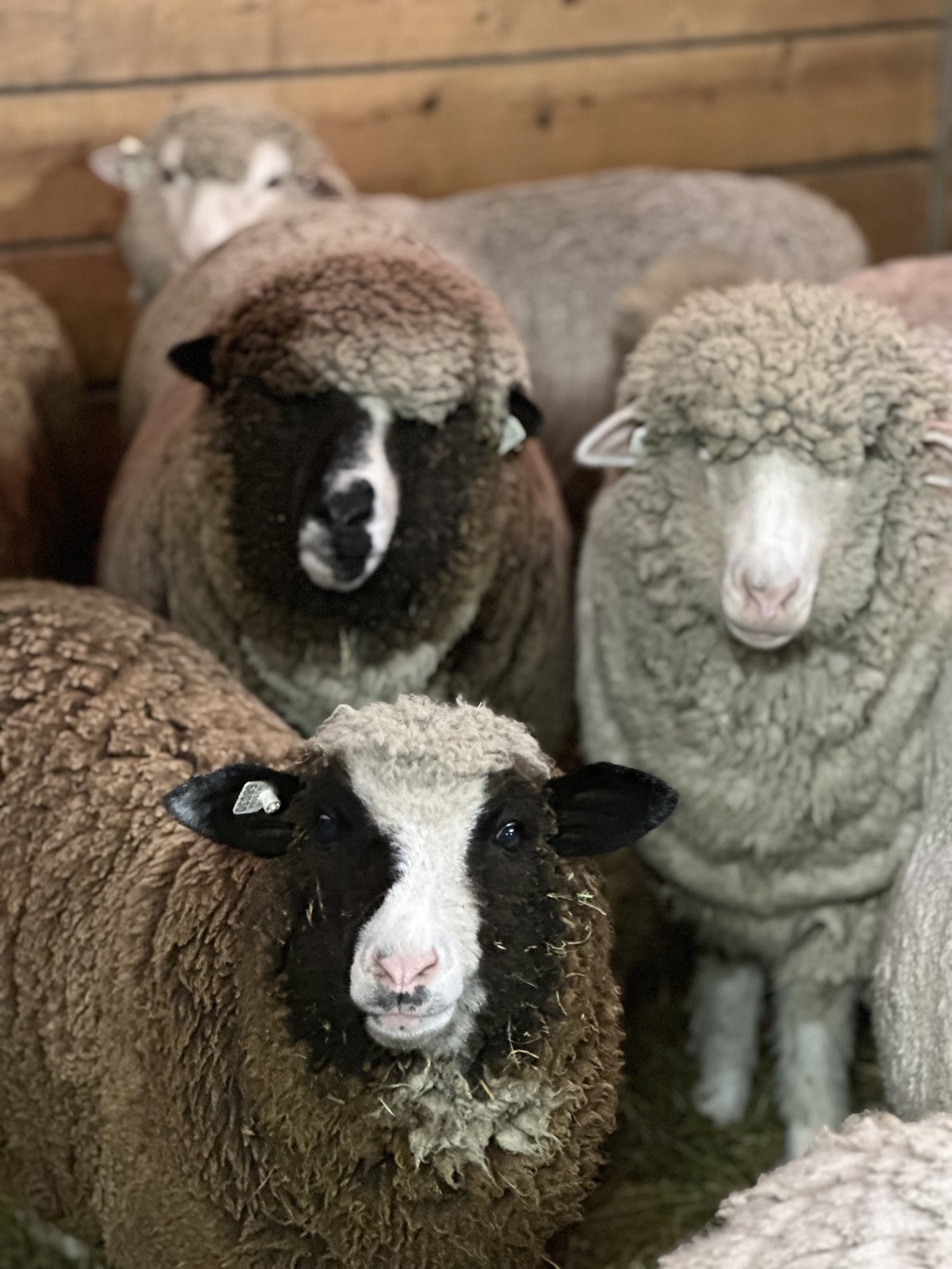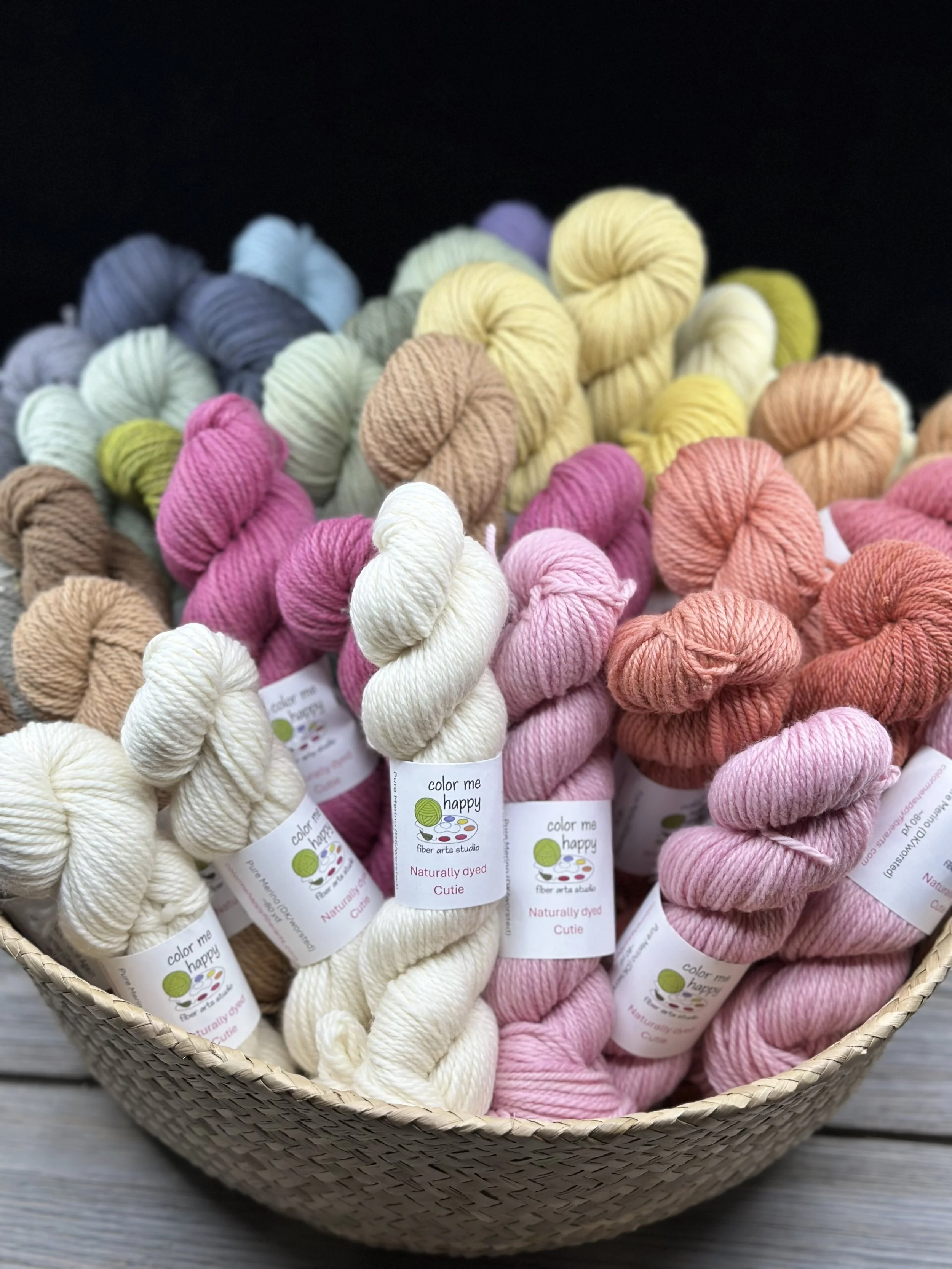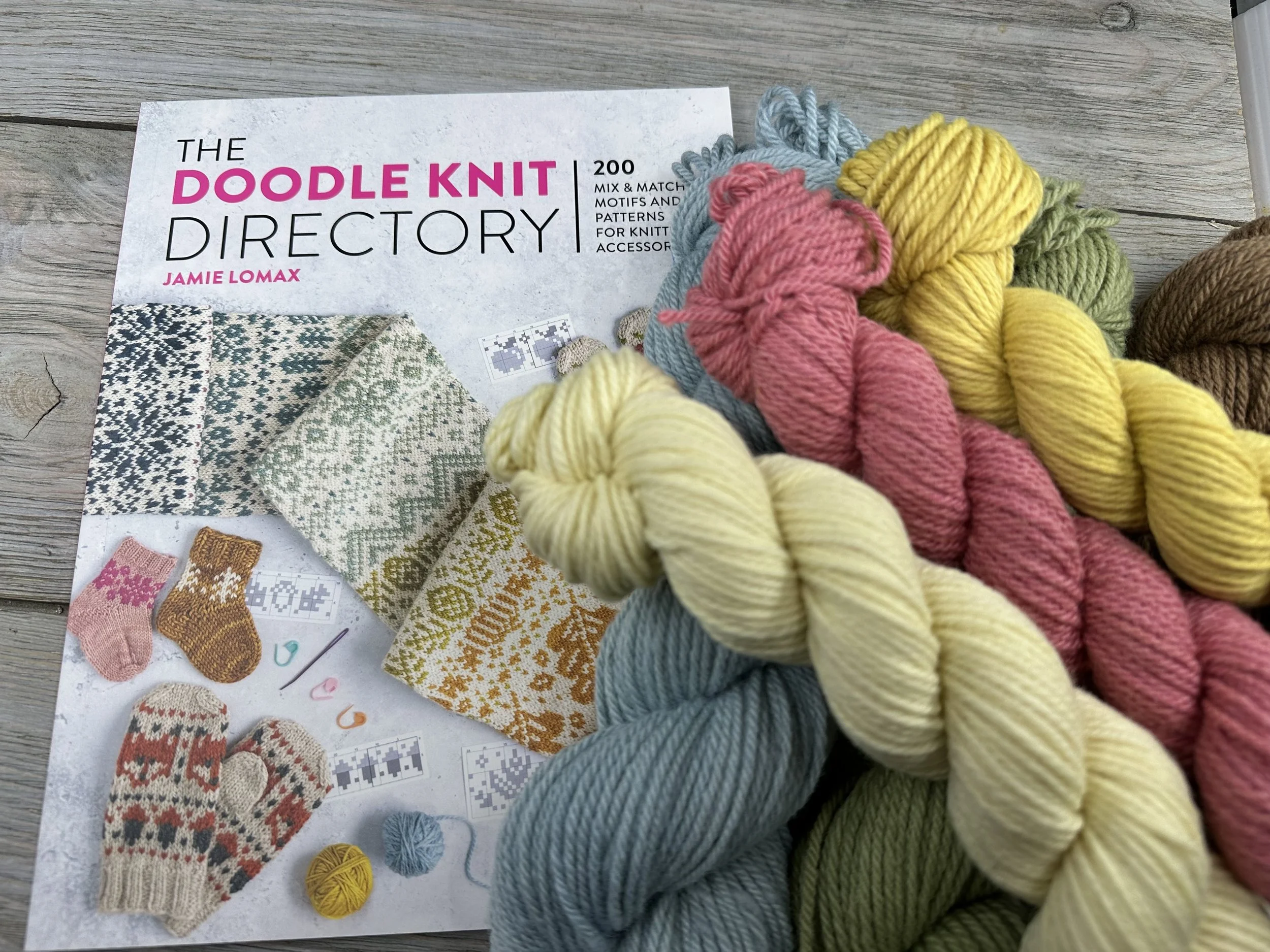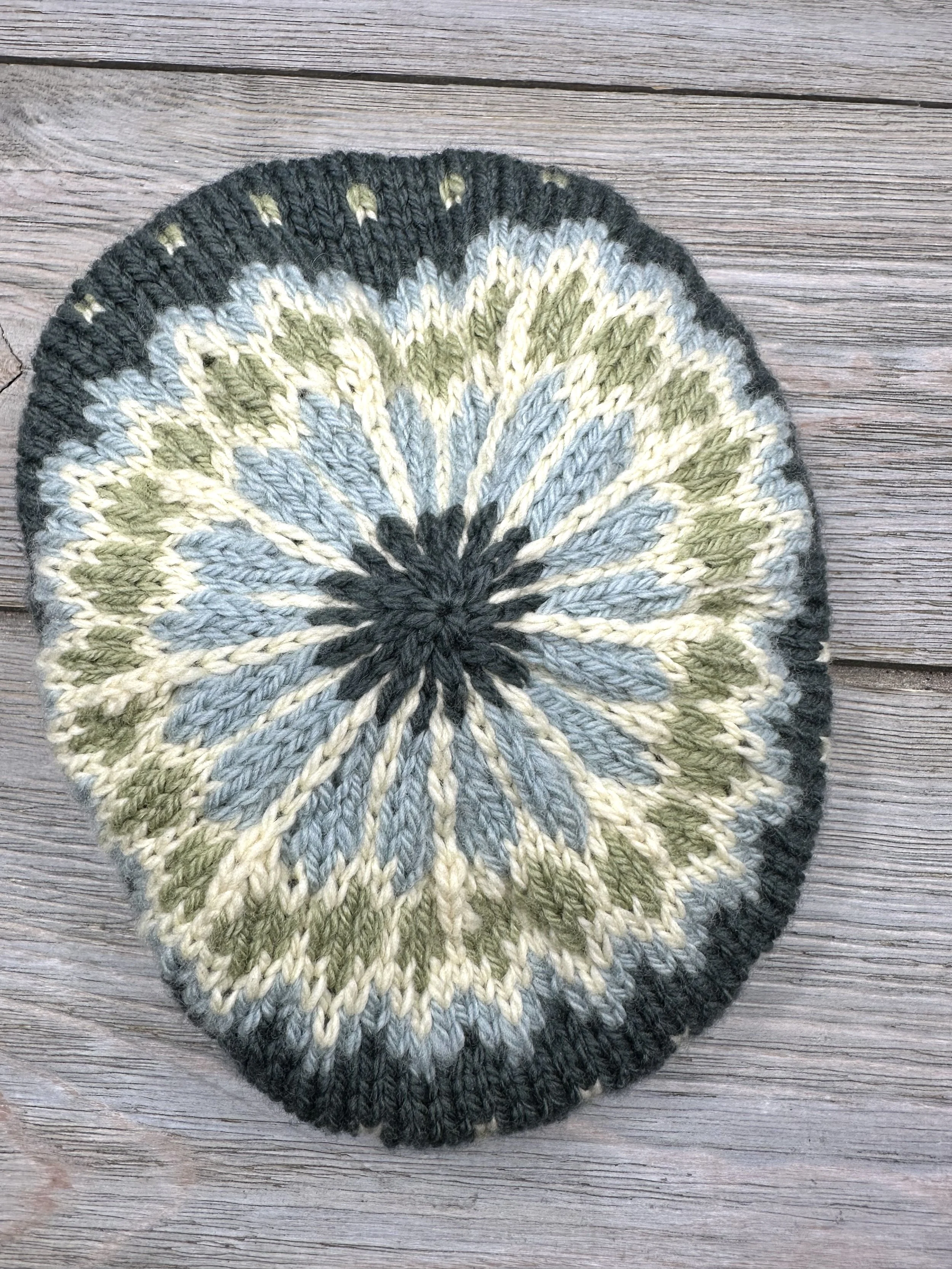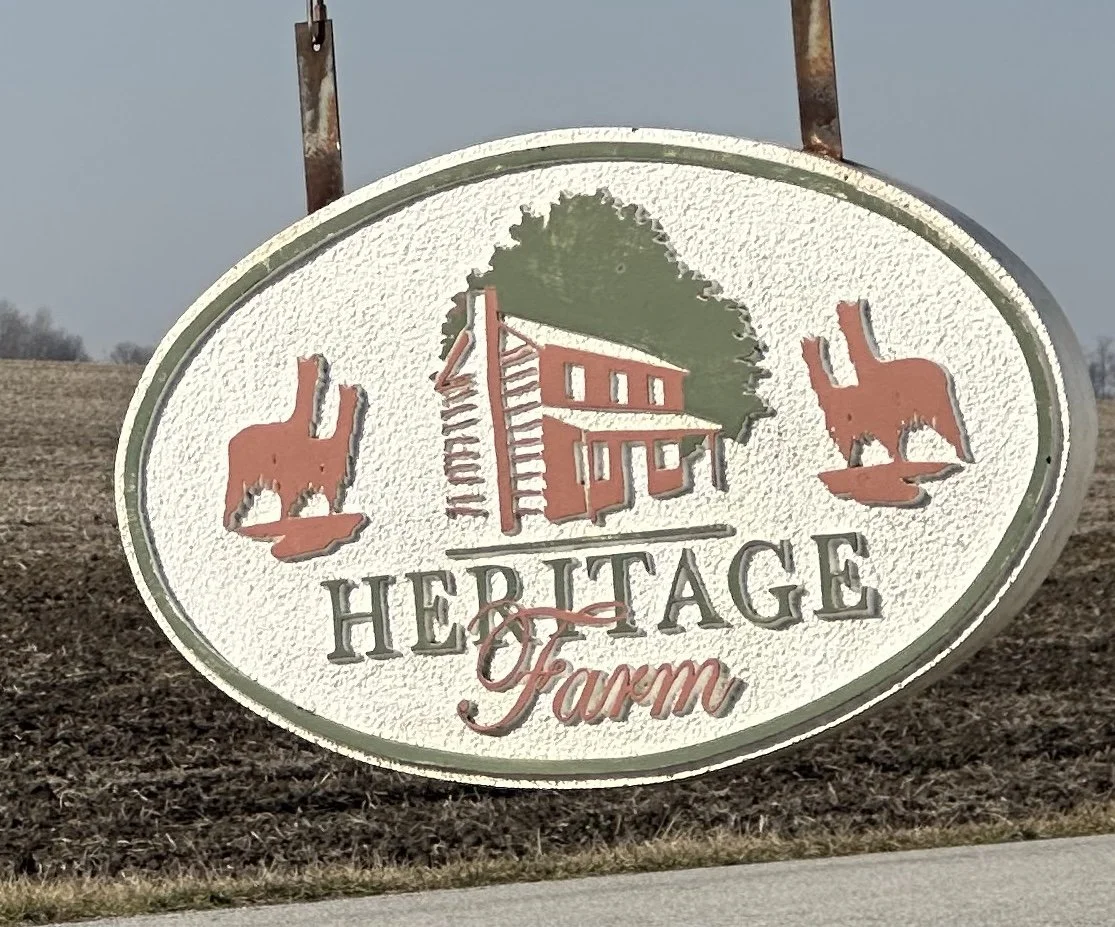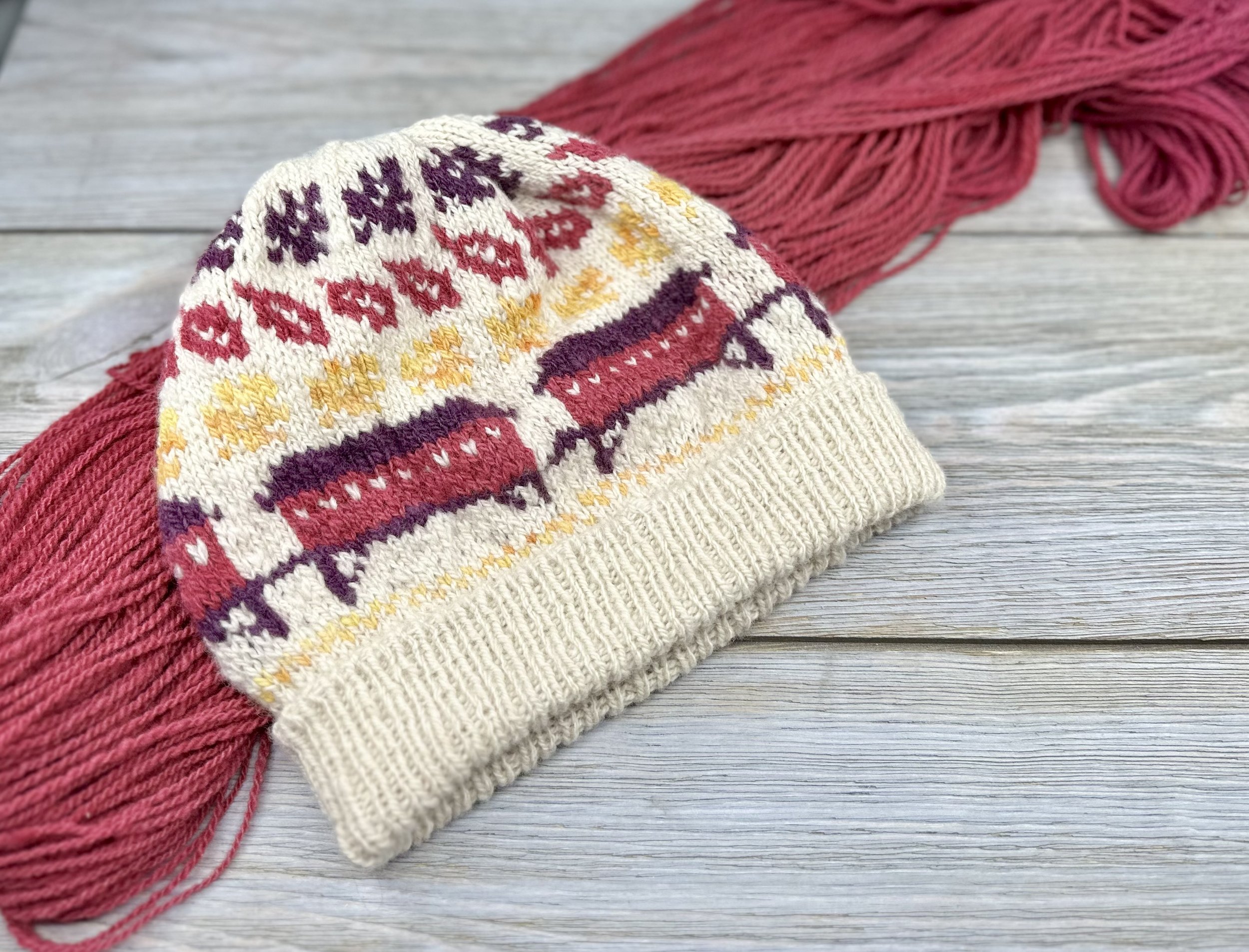Looking for local yarn?
From the beginning of Color Me Happy Fiber Arts Studio, we wanted to be part of the Fibershed movement that supports regional systems of fiber – from makers to users of that fiber, in ways that enrich and support the environment. The Fibershed movement started about a decade ago in California, with the intent of forming sustainable regional economies that encompass growing fiber and producing textiles that enhance soil health and address climate change while supporting the development of “soil to soil” textiles.”
For us, that meant working with local fiber producers and nearby mills to create special yarns that you just can’t find anywhere else.
And that’s how our Back Home Again yarns began.
We reached out to Ruth and Allison of Westfield Woolies because they raise a breed of sheep called Cormo that produce beautiful white fleece with extraordinary crimp and softness. Cormo sheep are descendants of Merino and have been bred to produce a fine, dense wool. What does this mean for the yarn? Cormo is super soft, even for people who think they don’t like wool because it might be “scratchy”. In contrast, Cormo yarn, like a fine Merino, makes a fabric that feels almost like soft cotton, but the fiber is springy and airy, with lots of bounce. This means that Cormo will keep its shape well and won’t grow or stretch out of place like cotton does. Cormo is light, and the fine crimp in the wool captures air, making it delightfully warm for sweaters, hats, mittens, and scarves. You will want to wrap yourself in this wool!
Shearing Day 2025 at Westfield Woolie - Cormo (and Cormo cross sheep) waiting for a haircut!
So that’s where we began with locally sourced fiber. We worked with Mike of Three Points Fiber Mill to make our first unique, local yarn of 100% Pure Cormo. He and his team took the fleece and turned them into three-ply, worsted weight skeins of yarn. We then dyed them with plants and other natural ingredients in our studio in Fishers, IN.
Although this yarn can be used to make garments and snuggly blankets, it is expensive. And the fluffy nature of it makes it perfect for hats and mittens—projects where you don’t need to buy a whole bunch of yarn. Pure Cormo is also great for colorwork – the fine scales on the yarn fit snugly together, so that your colors will fluff and connect perfectly. That’s why we created the Indiana Dunes Beanie Kit - an homage to our home state, with Indiana grown, milled, and dyed yarn. It’s also why we created little Cuties – small skeins of Pure Cormo (and some of Pure Merino) in a large variety of colors.
Our local yarn project expanded when we met Beth and Tim of Heritage Farm Alpacas, just over an hour north of our studio. They raise Suri Alpaca that produce fiber that grows in long, silky strands. In contrast to Cormo that is light and springy, Suri is heavy and luxurious. This makes Suri fiber a great choice when you want drape and flow for your projects. Suri fibers are also usually long and very strong, making Suri a great alternative to silk. Suri also feels cool; yet keeps you very warm. By itself, Suri is great for luxurious shawls, scarves, and flowing garments. Combined with wool like Cormo, you can make just about anything!
For the Suri, initially we bought some of Beth and Tim’s skeins already milled into yarn. We chose pure Suri and some blended with Tencel (a form of plant fiber that adds strength and moisture wicking properties) because of their luxurious feel and drape. After we dyed them, we labelled them Back Home Again Alpaca.
You can also find this type of yarn, though dyed in a different process, at Heritage Farm Alpacas.
After trying the two pure lines of local fiber, we have started blending them to find just the right proportion.
Our first blend is an 80% Cormo/ 20% Suri yarn. This yarn, being mostly wool, keeps the light springiness of the Cormo, with added strength and sheen from the Suri. You may have seen some of these skeins at the Indiana State Fair this year in the Indiana Grown Marketplace. Now they are making a full debut at the Bloomington Wool Festival! This yarn is at the heart of The Covered Bridge Beanie -- a very special collaboration with Stephanie Gilbert of Rosie Posie Knit Co. Stephanie is an Indiana designer who specializes in knit colorwork accessories with engaging images that make colorwork easy. We were delighted when she agreed to design a hat with our Back Home Again 80/20 Blend.
Covered Bridge Beanie designed by Rosie Posie Knit Co
We hope to continue to support and grow our local Fibershed, and we are grateful for the support of folks who have chosen our Back Home Again yarns.
